galapagos
-
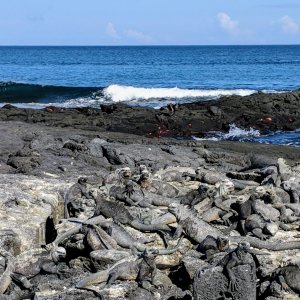
Galapagos marine iguanas
This iguana feeds almost exclusively on algae, and large males dive to find this food source. They mainly live in colonies on rocky shores where they warm after visiting the relatively cold water or intertidal zone, but can also be seen in marshes, mangrove and beaches.- cheryl
- Media item
- galapagos iguanas marine iguana
- Comments: 0
- Category: Travel
-
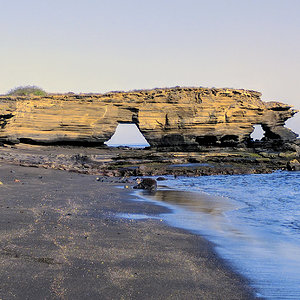
Santiago Island, Ecuador
Santiago Island is an island of the Galápagos Islands. It is also known as San Salvador or as James Island. The island consists of two overlapping volcanoes. Marine Iguanas, sea lions, fur seals, land and sea turtles, flamingos, crabs, dolphins, and sharks are found here.- cheryl
- Media item
- galapagos island santiago island
- Comments: 0
- Category: Travel
-
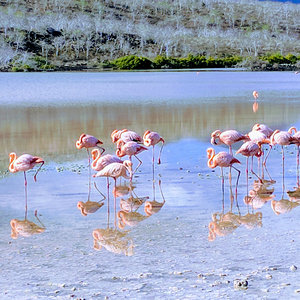
Flamingos
The American flamingo breed in the Galápagos. The population in Galápagos differs genetically from that in the Caribbean, and the Galápagos flamingos are significantly smaller, exhibit differences in body shape sexual dimorphism, and lay smaller eggs. They are sometimes separated as...- cheryl
- Media item
- flamingos galapagos
- Comments: 0
- Category: Travel
-
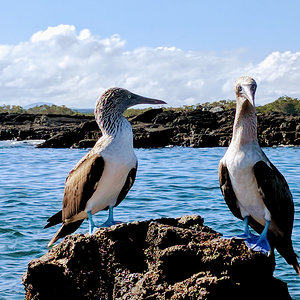
Blue footed booby
The blue-footed booby (Sula nebouxii) is a marine bird native to subtropical and tropical regions of the eastern Pacific Ocean. It is one of six species of the genus Sula – known as boobies. It is easily recognizable by its distinctive bright blue feet, which is a sexually selected trait. Males...- cheryl
- Media item
- bird blue footed booby galapagos
- Comments: 0
- Category: Travel
-
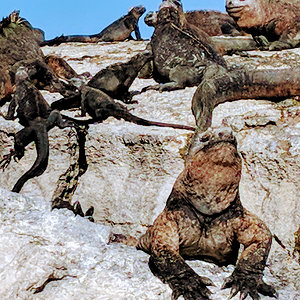
Galapagos iguanas
The marine iguana (Amblyrhynchus cristatus), also known as the sea iguana, saltwater iguana, or Galápagos marine iguana, is a species of iguana found only on the Galápagos Islands (Ecuador) that has the ability, unique among modern lizards, to forage in the sea, making it a marine reptile.- cheryl
- Media item
- galapagos iguana marine iguana
- Comments: 0
- Category: Travel
-

Galapagos fish market
Santa Cruz Fish Market Puerto Ayora Galapagos Islands. Notice the wildlife everywhere.- cheryl
- Media item
- fish market galapagos
- Comments: 0
- Category: Travel
